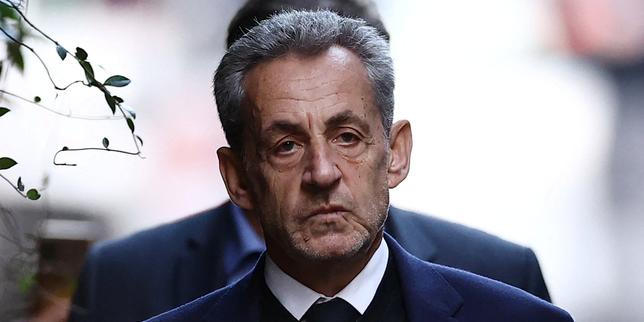Paris Appeal Court Reviews Nicolas Sarkozy's Request for Early Release After Historic Imprisonment
The Paris court of appeal is reviewing former President Nicolas Sarkozy's request for early release after his historic imprisonment for illegal campaign financing.
- • Nicolas Sarkozy was sentenced to five years imprisonment for financing violations related to his 2007 presidential campaign involving Libyan funds.
- • His request for early release is being examined by the Paris court of appeal after 20 days in prison.
- • Sarkozy is isolated in prison for security reasons and has received substantial support from sympathizers.
- • The appeal trial is scheduled for March 2026, under different judicial criteria than the original sentencing.
Key details
Former French President Nicolas Sarkozy, imprisoned since October 21, 2025, is awaiting a critical decision from the Paris court of appeal on his request for early release. Sarkozy was convicted and sentenced to five years in prison for conspiracy linked to illegal financing during his 2007 presidential campaign, involving illicit funds from the Libyan regime of Muammar Gaddafi. This unprecedented incarceration marks the first time in French history that a former head of state has been imprisoned, stirring significant public debate.
On November 10, 2025, the appeal court began examining Sarkozy's bid for release after twenty days behind bars. His legal team submitted this request immediately after his detention, and Sarkozy, now 70 years old, is expected to participate via video conference. If granted, he could be freed under judicial supervision, potentially monitored with an electronic bracelet. The court's initial rationale for his incarceration cited the "exceptional gravity" of the offenses, while Sarkozy has publicly denounced it as motivated by "hatred."
Currently held in isolation due to security concerns, with two guards stationed nearby, Sarkozy has also received hundreds of letters and parcels from supporters within France and abroad, highlighting the mobilization of sympathizers following his imprisonment. His ongoing legal battles have raised questions about judicial independence, especially after a controversial visit by Minister of Justice Gérald Darmanin to Sarkozy in prison.
The appeal court is set to apply different criteria than those used during his initial sentencing. Meanwhile, the trial for this appeal is scheduled for March 2026, a significant date that will further shape the political and legal aftermath of this landmark case.
Notably, amid this high-profile legal drama, another societal debate unfolded with the rector of the Grande Mosquée de Paris harshly criticizing whistleblower Chawki Benzehra and condemning statements by former ambassador Xavier Driencourt related to Algerian influencers, though this remains separate from the Sarkozy case. Nevertheless, Sarkozy’s current situation dominates the public and media spotlight in France as he awaits the court’s decision today.
This article was translated and synthesized from French sources, providing English-speaking readers with local perspectives.
Source articles (2)
Source comparison
Latest news
France Returns the Djidji Ayôkwé Talking Drum to Côte d'Ivoire After Over a Century
Record 37 Days of Rain Triggers Ongoing Severe Flooding in Western France
Political Divisions and Social Tensions Intensify Following Quentin Deranque’s Death in Lyon
French Economy Minister Calls for Full Insurance Industry Mobilization Amid Devastating Storm Floods
France Boosts Social and Solidarity Economy with New Tools and Potential Tax Reforms in 2026
Saint-Nazaire Mayor Condemns Vandalism of Two Political Offices as Attack on Democracy
The top news stories in France
Delivered straight to your inbox each morning.


